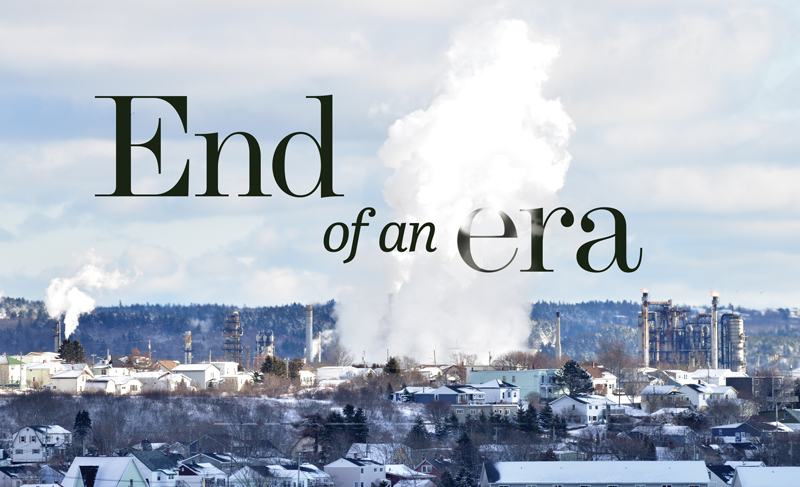Account Login
Don't have an account? Create One

With the possible sale of Irving Oil on the near horizon, Atlantic Canadians may soon have to get used to living in a post-Irving universe. Or not. One way or the other, history will be made
It was impossible to believe, like the “fake news” that occasionally circulates on social media … Climate change a hoax… Covid a government conspiracy… Irving Oil to sell Saint John refinery… Wait, what?
But there it was, in black and white, in a press release on June 7, 2023, under the company’s logo, no less. “Consideration will be given to a new ownership structure, full or partial sale, or a change in the portfolio of our assets, and how we operate them … Today, Irving Oil is announcing that a strategic review of the company is underway.”
Of course, it also said that no decisions had been made about where the strategic review may lead. “As we evaluate our options in the coming months, our focus remains on our team, and continuing to deliver quality products and reliable energy.”
But that didn’t matter. Strategic review … New ownership structure … Full or partial sale. That’s what mattered. Were they serious? After 100 years of corporate existence in New Brunswick—62 of which were spent building and operating what has become Canada’s largest refinery—was Irving Oil actually calling it a day?
What of the thousands of plant and head office jobs in Saint John and beyond? Or the hundreds of businesses across New Brunswick that supply the multi-billion-dollar monolith with goods and services every day? What about the social programs and academic research the Irving family underwrites throughout Atlantic Canada every year?
Indeed, what happened to legendary founder K.C. Irving’s son Arthur’s public pronouncements, time and again, that as the dutiful heir and owner—now 93 years old—he would never leave his province, his region? That he would never allow his business assets and operations to dwindle or be sold to international carpetbaggers who likely wouldn’t give a fig for hard-working Maritimers?
What about (gulp!) us?
Continue reading this story: click below to login/subscribe
Login or SubscribeComment policy
Comments are moderated to ensure thoughtful and respectful conversations. First and last names will appear with each submission; anonymous comments and pseudonyms will not be permitted.
By submitting a comment, you accept that Atlantic Business Magazine has the right to reproduce and publish that comment in whole or in part, in any manner it chooses. Publication of a comment does not constitute endorsement of that comment. We reserve the right to close comments at any time.
Cancel
There is no doubt the possible sale or partial sale of Irving Oil has dominated local business discussion here in Saint John.
While your article ‘End of an Era’ provided the broad brush strokes to this story, I feel the fact such a discussion in this regard is even happening is due to one thing.
Lack of family leadership moving forward.
The grim reality is that – within Irving Oil- the lack of an Irving successor to Arthur Irving is the problem.
While Kenneth Irving’s health challenges have been well chronicled, his vision for Irving Oil’s future did not align with that of his father.
Kenneth detailed the ‘complexity’ of being in a family business as well as inside Irving family life in a revealing and honest feature article in ‘The Globe & Mail in late January 2017.
Kenneth wanted Irving Oil to branch out into alternative energy sources: tidal, wind , and solar power.
His father’s now famous quote:
‘We sell oil, that’s what we do.’
This apparent divide was never bridged and it has brought Irving Oil to where it is today.
If you had suggested 20 years ago that a day would come when Irving Oil would be sold, people would have thought you were crazy.
It would never happen.
But, here we are.
Should Irving Oil be sold( in whole or in part), the company would have lasted two generations under family leadership.
With the Irving family 3 way split happening now well over a decade ago, it is only the Irving Oil segment with family leadership problems.
The future looks much different for the other Irving ‘segments’.
JDI with pulp&paper; shipbuilding; frozen food products; trucking; offshore support ; and paper products has long range leadership intact within the sections of the Irving family involved.
Indeed, beyond Arthur’s brother , JK Irving, his two sons James and Robert and their children are positioned to lead JDI for decades.
Jack Irving’s family(headed by his son, John) has leadership in place as well.
Under the name Ocean Capital Investments this section of the Irving family is involved in real estate; engineering services; hardware; broadcasting ; structural steel and concrete.
Ocean Capital Investments have businesses throughout Atlantic Canada extending into Central Ontario and Western Canada.
In the end, they say it is rare for a family business to last further than 4 generations.
While the future of Irving Oil appears somewhat uncertain, it is clear the company’s leadership will undergo some changes – large or small.